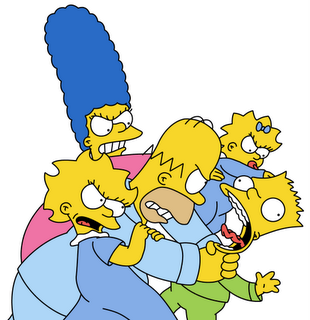
This is a continued post from the last regarding determination and WILL. I will no longer use the term free-will as I do not see it as being free. If it were free then nobody would ever become a slave to an addiction. It seems that will comes with a price. That price is the ability to make positive and correct choices. If we make choices that are not in-line with continued self-actualization (see Maslow's Hierarchy or Carl Roger's explanations on self-actualization) we give up a small portion of out choice ability. Therefore, it is in our benefit to make those positive and growth promoting choices. I do not have an actual psychological algorithm that would ensure a constant positive outcome. Everyone has to do that on their own using their own value system and morals; but, that is not what this paper is about. Rather, I want to focus on choice and how one choice isn't actually one choice, but a series of smaller choices leading to a final choice.
Let's begin with personality. My thoughts on personality are fairly simple. Any individual who has raised more than one child knows that at birth each child is different than the other. Not only in appearance, but in their mannerisms, etc. Each child already begins with a unique and different personality. As the child grows it seems that many of those original characteristics stay, some become dormant and others are integrated into the personality schema. I will describe a personality schema as parts of a whole. A personality is made of small parts, roles, sections, etc. that when combined create the entire personality. If you look at a whole personality as a soccer ball then the parts and roles are the six-sided sections that are combined to make the ball. Only, in a personality the sections are three dimensional. Some common roles to personalities are: a person is an 1. individual; 2. a son/daughter; 3. a brother/sister (if not an only child); 4. a friend; 5. a student; to name a few. As a child grows their personality integrates new roles. Each role carries out a certain job or expectation. A student has different expectations than a policeman, for example. If we wanted to become even more complicated, we could take one role and break it down into smaller roles. The same senior high school student is not the same as they were in the first grade. Role definitions are changed, modified, and molded through experience, environment, culture, cognitive beliefs, personal choice, society, standards, morals, rules and regulations, etc. I am sure that we could add more to the variables that can influence personality structure, but it would become far too complicated and unnecessary at this time. However, another important aspect has to do with the strength of a role or part within the schema. It would make sense that the more a specific role was utilized and reinforced, the stronger it would be within the system. It would almost grow in size, strength, and authority within that schema. How is this important to choice and will? Let's suppose that will is simply an already integrated part or role within every person's personality schema. The ability to reason and choose is already there. What would happen if we did not exercise that role? It seems to me that it would atrophy. Just like my six-pack abs have weakened due to lack of exercise, overeating, and an affinity for Mountain Dew and carbohydrates, so can our strength to choose decrease if we do not exercise it. Why would someone wish to stop choosing? There are many reasons that I'm sure we could come up with; however, it comes down to small choices that lead to the larger choice of giving up one's will and becoming a victim of experience, environment, culture, society, standards, cognitive beliefs, etc. I do it. I know I do. I'm sure that you do it as well.
Now, I will discuss how a large choice comes from smaller choices. If someone makes the decision to do something that is detrimental to himself or others, it didn't happen all at once. For example: infidelity in marriage. A spouse that is unfaithful did not all of a sudden decide that he/she was going to be an adulterer. There were small choices beforehand. It starts with little thoughts such as "I wish my husband was home more often. He works so much" or "I wish my wife wouldn't spend so much time with her friends when I'm home. They're more important than me." Those kinds of thoughts may seem harmless. However, they can grow into judgments against a spouse. All the thoughts are CHOICES. We choose to think them and continue thinking them. We can choose to stop them as well. How? By becoming aware of what we do, think, and feel. A good gauge to begin changing it is by noticing how we feel in general or in certain situations. Our emotions are there to teach us something. There's no need to think that you shouldn't have them. We need them. If something is upsetting you, figure out what's going on in your head. Are there judgments that are being made about others or yourself? Are they true? If they are, what does that mean to you? If they are true is the world going to end? Once you figure out the judgments, act on them; replace them; dispute them; do what it takes and what works for YOU. Take responsibility for your own feelings, thoughts, and actions. You're the only one accountable for them. If they're not that important, let them go. It takes courage to do all of these things, but the more you do it the easier it becomes and the stronger your will becomes. The fruits of your choices will positively reinforce your new behaviors and continue to strengthen your will.
That is all I have to say about that for now...
Except for one sidenote. If an individual has mental deficits that are caused by a truly diagnosable physiological condition, then the above information is more than likely not applicable. If you read this and say, "well, I have this mental/emotional disorder that makes me do this or that and I have no control over it" then I'll say to you the following--seek medical and professional counseling help. Your will is probably not gone. It's too small for you to make a decision or you're too afraid to try. If that is the case, start out with small choices. If you're stressing over buying Charmin or some sand-paper-like toilet paper, try the one that you normally don't get. Just make the choice and move up from there. Do it every day. If you're really feeling courageous or want to feel courageous, do something even bigger. Pass gas loudly and proudly in a crowded line at Walmart. That takes guts. Do it for yourself!







